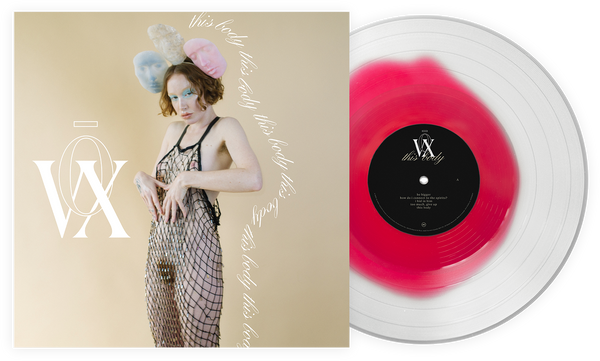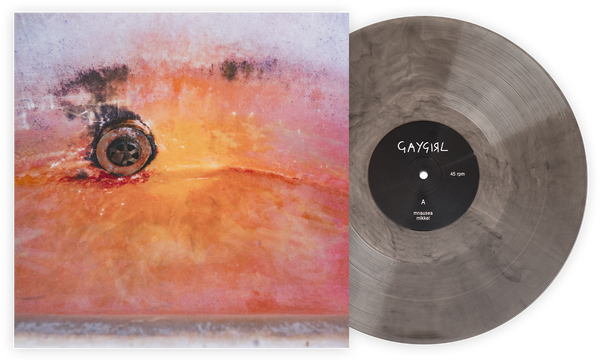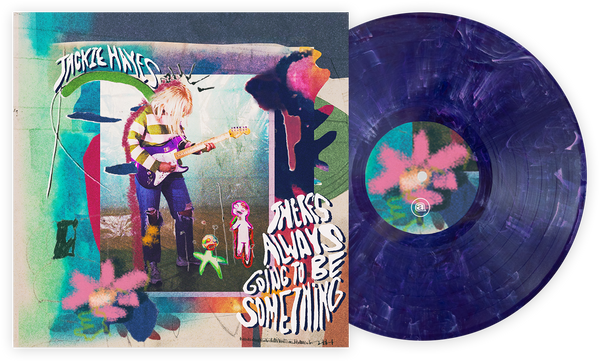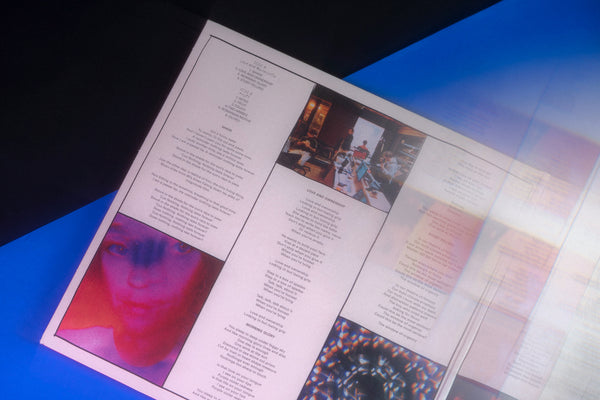VMP Rising adalah seri kami di mana kami bermitra dengan para artis yang sedang naik daun untuk mencetak musik mereka ke dalam vinyl dan menonjolkan artis yang kami pikir akan menjadi Hal Besar Berikutnya. Hari ini kami menampilkan Shadow On The Wall, album EP debut dari TATYANA.
nFoto oleh Nwaka Okparaeke
As the FaceTime rings from London, TATYANA checks in from the throes of a nap, six hours separating my afternoon from her evening. I quickly inquire about the differences between my stateside hysteria and her moving through England; no matter the banner, the all-or-nothing implications aren’t fazing a large swath of folks moving for themselves with no regard. TATYANA’s living at home with her mother, taking every precaution to ensure her safety while maintaining an adaptability to the thick of uncertainty. Everyone’s easy to reach, and extremely easier to miss no matter how quickly one can dial in.
Like many on the millennial/gen-Z borderline, TATYANA’s transient life story resembles a newfound normalcy for many twentysomethings attached to the internet and unhinged from the conventions of their parents. While a screen can put one almost anywhere, TATYANA’s been almost everywhere: a child of an English father and Russian mother who left the Soviet Union for a new life, TATYANA spent her childhood in a “rootless” manner, switching homes and homelands as her family sought work and stability. She grew up with the pride and privilege of a British passport, but spent her youth building and leaving versions of herself from Holland to Singapore and more. Since returning to London in 2017, she’s taken up another chance to build with herself as she builds with the city she holds dear.
“When you come back to a place that you've been in before, and you're kind of trailing all your new identities and experiences that aren't related to the place that you're in at that moment, it feels like you're bumping into ghosts of yourself from the past,” TATYANA says. “You're like, ‘Oh, I remember being here, but I feel totally different now and I feel I'm a different person and people relate to me differently.’ I don't really feel I belong anywhere; like, there's not one place that I could say is my home. It is what it is. I feel like it's going to be like a lifelong kind of journey, just trying to find a place in the world that I feel is my place.”
Whether achieving virality through covers and harp videos, or music school stints at Berklee and the BRIT, TATYANA’s 23 years are rife with converging journeys through the academic and social. She recalls the big fish syndrome of her youth, being one of the only musicians in her high school peer group in Singapore; when one’s the school artist, surely one’s path to superstardom is imminent! But upon moving to Boston for Berklee, she was thrown into the competitive rigor of being surrounded by fantastic artists, resulting in many an ego death and humbling herself to the learning process. The experience engulfed her in the U.S. Black jazz tradition while shaking her from the solitary nature of her creation, enabling rapid growth in a community context. Yet, the ivory tower trade off — in the price of the ticket — placed a governor on her gift that was nowhere to be found prior to her entrance.
“When you go through an institution like that, you [can’t] lose sight of what it was that made you want to make music in the first place,” TATYANA reflects. “Because your head is filled with all of this information about what you're supposed to do and how things are supposed to sound. It can kind of steer you in directions that maybe you're not really supposed to go in. So I had to kind of turn off that part of my brain. I couldn't listen to music for a year, if not longer, after I graduated because it was very difficult to; I couldn't switch off that analytic kind of scrutinizing, criticizing part of my brain that you develop at these places.”
Upon moving back to London in 2017, TATYANA credits a Halloween rave as her initiation into the transformative power of finding her community and thriving in a supporting environment. She craved a way to learn how the city ticked, and found herself seized by the beat; she was no techno artist, not yet, but it sparked her desire to integrate dance music into the new self she was building. She found her people, her proving ground, and another way to shake the programming. Two years later — same warehouse, crowd, and pagan holiday — she performed her own material in the club to an overwhelmingly positive reception.
The rest of life after art school’s found TATYANA gathering herself in public, slowly prepping to enter the limelight while finding a way to truly make a record. As @blueharpgirl, she’s leaned into her talents by condensing them into the Instagram square, amassing over 20k followers for covers and soundbites with the proper clickable trimmings of synesthetic aesthetic. But she’s a pop star at heart, beginning her next chapter by releasing her Shadow On The Wall EP. With only two singles so far, the transition’s merging all of TATYANA’s selves while raising many of the same questions in her offscreen life: who is she trying to become? Where does she want to be from? Which of her supporters will come along when it’s not @blueharpgirl in crop top with a cover song to sing?
“Something that has been, like, a very private dream (and kind of reality) for me, now I'm making it public,” TATYANA says. “I'm gonna make mistakes, it's not going to be perfect from day one, but I just know that there's so much left to say and do in this artist persona that I'm creating. I think it's going to be fun, and I'm trying to be positive about it because I think there's going to be some music that's going to connect to people. So new fans, old fans, whatever it may be, they can come and watch me turning from a caterpillar to a butterfly hopefully. I'm learning just like everyone else, so I think it will be OK.”
The first TATYANA offerings meld all of her strengths together into an ethereal, dreamy pop that’s deeply romantic and reveling in ambiguity. She’s the first to admit that she “live[s] in a daydream,” and the 5-song effort finds her maneuvering through her desires for something good while evading definition and stability. It’s a direct reflection of her own transience, each record another attempt to seize and cherish beautiful moments while surrendering oneself to their impermanence; this registers for feelings, seasons, people. The gentleness of her voice can reel the listener directly into confusion, a euphoric feeling easily accompanied by the brightness of her visual aesthetic. There’s a lure waiting in the allure, every bouquet and long dress another trick card for how TATYANA’s music can haunt one’s senses the way thoughts often haunt her own.
“In many ways I feel like those songs are sort of speaking to the idea of people rather than actual people,” TATYANA says. “Because I'm having a conversation with myself really. So it takes on this sort of dreamlike state because those people aren't even real, they're just fantasies I've made up that represent the people I love in my head. And I'm saying to them — rather than the real person — because I've always had this very vivid imagination. Especially as a child, my dreams and the things that I would think about just felt so real to me. Part of the place that I write music from is just that inner child: all my dreams are reality, and the conversations that I'm having with these ghosts, or projections, feel like they would somehow come true. Even if they don't come true in the end, they stay true in the music.”
TATYANA’s relationship to her dreams also reflect the way she engages her craft. A student of the lineage of innovative harpists — the likes of Alice Coltrane and Dorothy Ashby come up in our conversation — as well as classical Russian composers, TATYANA’s infatuated herself with the opportunity to push past her classical training and expand the power of her instrument in sync with her devotion to the power of good pop music. By operating from the gray area between genres and traditions, she moves toward the unconventional and original even as she treads the familiar thematic terrain nestled in the backbone of pop music. It’s a process she can’t articulate, though the sheer power remains a critical reason she continues to create. At her best, she learns and unlearns by immersing herself in information until she arises with something new.
“I think just in my personal life, I also lay between feeling like I know absolutely everything to feeling like a total idiot and realizing that I need to educate myself or I need to learn about something,” TATYANA says. “And with the music… I don't really ever want to know. The process of writing a song is still really mysterious to me. I don't really know how it happens. Every time it does, it sort of feels an accident, or like I went into a kind of trance state and came out with a song, and I'm like, ‘How did that happen?’ It's still very mysterious. And I think that if I ever do find out how I do what I do, it might just ruin it. I think it's better as a mystery, so I try to keep it mysterious. I try to shroud it with rituals and things that I can do to allow myself to access that state, but I don't want to understand it.”
But TATYANA does understand the healing power of music, and works to channel that energy down to the scientific level of her practice and the physical level of her instrument. She recalls playing music to soothe her grandmother’s dementia, crediting the vibrations of harp strings as a power she doesn’t understand, but can visualize. It’s as if TATYANA’s grown to embody her instrument of choice more than she’s seen: a vessel for the uncertain, moving power through a trust of the misunderstood. She can only control her moments, even as time and space has constantly shifted around her; now she’s manifested another chance to vibrate under her own conditions with the same intentions of true connections.
“I think pop is healing,” she puts plainly. “I think it's an escape, it's universal. I just love joyful, universal themes and connecting to as many people as possible. I think there's something really powerful in that. But I think that genre can really be anything, and I’m beginning to figure out the goal I had in my head since I was a kid: ‘How do I bring this magical instrument into this genre? Like, how do I make harp pop?’ First, you have to know how to make pop, and you have to know how to play the harp, but I think it'll blend together in the future, and I hope it'll be really powerful in its healing properties.”
Michael Penn II (aka CRASHprez) is a rapper and a former VMP staff writer. He's known for his Twitter fingers.
Related Articles
Bergabung dengan Klub!
Bergabunglah sekarang, mulai dari 44 $Diskon eksklusif 15% untuk guru, mahasiswa, anggota militer, profesional kesehatan & penjaga pertama - Verifikasi sekarang!








